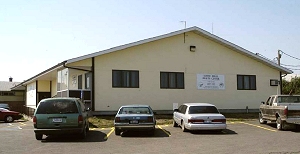
- Details
- By Native News Online Staff
U.S. Senators Brian Schatz (D-Hawai‘i), Vice Chair of the Senate Committee on Indian Affairs, and Jeff Merkley (D-Ore.), Ranking Member of the Senate Appropriations Subcommittee on the Department of the Interior and Environment, sent a letter to Health and Human Services Secretary Robert F. Kennedy Jr. expressing concern over delays in health care delivery within the Indian Health Service (IHS). They attributed the delays to burdensome administrative policies carried over from the Trump administration and urged Secretary Kennedy to reassess these requirements.
The senators also requested an update on efforts to address persistent staffing shortages at IHS.
“Additional layers of review implemented by DOGE, including the PAA-DER process, have resulted in lengthy approval processes and hampered the ability of IHS facilities to deliver lifesaving and routine health care,” the senators wrote. “Such delays will have life-or-death consequences for patients, if they have not already. We accordingly urge you to immediately reexamine and consider exempting IHS and services associated with the agency’s health care services from this burdensome process before additional facilities are forced to suspend services.”
The full text of the letter is below and available here.
Dear Secretary Kennedy:
Months ago, we urged you to reevaluate any federal actions that could jeopardize the delivery of health care to American Indians and Alaska Natives (AI/ANs). Despite our concerns, over the past eight months, administrative policies, including staff reductions and an agency-wide hiring freeze, have predictably begun to disrupt the delivery of health care services to AI/ANs. We now write urging you to reexamine applying new Department of Government Efficiency (DOGE) efforts, including the “Presidential Appointee Approver and Departmental Efficiency Review” (PAA-DER) process that requires multiple layers of administrative approval on all contracts and requisitions, to the Indian Health Service (IHS). As you well know, the health care needs of Indian Country are unique, and any new, additional administrative policies and technologies that delay or impede health care delivery would worsen an already overburdened system.
While the IHS is responsible for serving 2.8 million AI/ANs each year, it struggles to recruit and retain a qualified workforce, resulting in a well-documented lack of available essential and basic health care services for Native peoples. The IHS’ medical facilities are often located in rural areas and regularly face significant vacancy rates for physicians, nurses and other key clinical providers. These vacancies, which you have repeatedly acknowledged, often force facilities in many Native communities to reduce access to critical medical care, including behavioral and mental health care needed to address the substance use and suicide crises plaguing Indian Country.
Additional layers of review implemented by DOGE, including the PAA-DER process, have resulted in lengthy approval processes and hampered the ability of IHS facilities to deliver lifesaving and routine health care. For example, the Gallup Indian Medical Center in New Mexico, which was already experiencing longstanding staffing shortages, recently scaled back ultrasound services, reduced medical surgery beds by 50 percent, stopped inducing labor for patients, and suspended most general surgery due to PAA-DER. And across other IHS regions, software contracts have not been renewed due to bottlenecks caused by this process, preventing clinicians from accessing commonly used medical reference libraries. Such delays will have life-or-death consequences for patients, if they have not already. We accordingly urge you to immediately reexamine and consider exempting IHS and services associated with the agency’s health care services from this burdensome process before additional facilities are forced to suspend services.
We look forward to your written reply, which should include responses to the questions below, and request a meeting with you and the Senate Appropriations Committee and the Senate Committee on Indian Affairs Minority staff to address our concerns.
- Your office has stated that, “The Department will continue working closely with Tribal Nations to protect health care access and to strengthen delivery systems across Indian Country.” What specific steps have you taken to make progress toward this goal?
- What specific steps are you taking to address longstanding vacancies across IHS?
- You recently appointed a senior adviser to the Secretary on Indian health. Please explain exactly how you will leverage this appointment to ensure the needs of Native communities are met.
- You mentioned at a Self-Governance Conference held in Gila River, Arizona in April that you wanted to explore piloting artificial intelligence bots and technology in IHS facilities and programs. What are your plans to move this pilot forward, and do you plan to hold Tribal consultations prior to launching such pilots?
- A spokesperson for your Department asserted that the PAA-DER process has not affected IHS service delivery, and staff have claimed unfamiliarity with the PAA-DER process. Given the reported harm caused by this process and impacts on service delivery, will you exempt IHS from this process moving forward?
- Will you engage in Tribal consultation regarding policies currently impeding service delivery in Indian Country, such as the PAA-DER process? If not, how will you determine which federal processes disproportionately impact programs serving Native communities, including IHS and other Native-serving programs at the Department of Health and Human Services (HHS)? Please be specific.
- How often do you meet with your agency’s Tribal Advisory Committee and the Tribal Interior Budget Committee? Please be specific.
- Do you support advance appropriations for IHS? If so, did you advocate for the inclusion of advance appropriations in the FY26 Budget Proposal?
- Will you commit to advocating for the inclusion of advance appropriations in FY27?
- When do you plan to hold formal Tribal consultations regarding development or implementation of your HHS reorganization and Reduction in Force plans?
Sincerely,
More Stories Like This
Seven Deaths in Indian Country Jails as Inmate Population Rises and Staffing DropsSen. Luján Convenes Experts to Develop Roadmap for Native Maternal Health Solutions
Senate Passes Bill Aimed at Missing and Murdered Indigenous Peoples Crisis
Johns Hopkins Collecting Tribal Success Stories from $1.5B Opioid Settlement
Arizona MMIP Task Force Holds Listening Session for Survivors and Families

